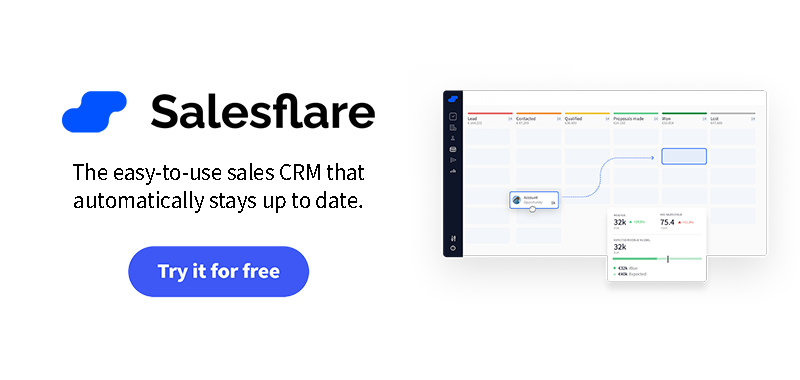Comment créer et développer une agence de marketing numérique rentable ?
Votre guide pour la réussite d'une agence
Vous avez décidé de faire le grand saut dans le monde des agences - félicitations !
Comme vous le savez certainement déjà, la création (et le développement) d'une agence de marketing peut être un processus long, douloureux, épuisant - mais gratifiant. Depuis l'enregistrement de votre SARL jusqu'à la recherche de vos premiers clients, il y aura de nombreux obstacles à franchir.
C'est pourquoi nous avons élaboré ce guide ultime pour vous aider ! 💪
Vous trouverez ci-dessous des astuces, des conseils et des ressources utiles sur la manière de lancer et de développer avec succès votre agence de marketing. Et si vous êtes passé par là, faites-nous savoir dans les commentaires si vous avez d'autres conseils à partager.

Partie 1 : Démarrage et promotion
L'essentiel
Votre agence doit-elle s'orienter vers un marché large ou une niche ?
L'une des premières choses à considérer lorsque vous créez votre propre agence de marketing est ce que vous voulez exactement offrir à vos clients. 🤔🤔
Tout comme les entreprises de produits essaient de trouver un marché adapté à leur produit, vous devez trouver un marché adapté à vos services.
Bien qu'il existe de nombreuses agences à service complet qui réalisent d'excellents travaux dans diverses disciplines, il est important d'envisager la possibilité d'être un peu plus spécialisé lorsque l'on débute.
Pourquoi ? Parce que si vous pouvez montrer à vos clients que vous êtes capable de faire quelques choses très bien, plutôt que de tout faire à moitié, vous êtes un atout beaucoup plus précieux pour eux. Et soyons honnêtes : s'il n'y a que vous, ou une petite équipe, qui travaillez pour votre agence, la dernière chose que vous voulez faire est de vous surcharger dès le départ. 👎

Êtes-vous doué pour le référencement ? Conception de sites web ? La promotion des médias sociaux ? Il est préférable de s'asseoir et de dresser la liste des services que vous aimeriez offrir, puis de réfléchir réellement à la question de savoir si ces services sont vos meilleurs atouts.
Connaître son expertise dès le début peut vraiment aider à long terme. 🙌 De plus, lorsque le travail commence à s'accumuler, vous aurez une meilleure idée des tâches que vous pouvez accomplir. rémunérer les entrepreneurs indépendants pour. Dans l'idéal, il est préférable de conserver votre expertise de base en interne. Mais pour d'autres tâches supplémentaires, vous pouvez envisager l'externalisation.
Les entreprises peuvent parfois craindre d'être too niche et de manquer de clients, mais pensez-y de la manière suivante : si vous offrez quelques services vraiment excellents, vous aurez des clients qui auront besoin de ces services et, en retour, vous ferez un travail que vous voulez vraiment faire (en plus, c'est un travail pour lequel vous êtes excellent).
"En haut de la chaîne alimentaire" ou sous-traitant
Une autre chose à prendre en compte au début est de savoir à qui vous souhaitez offrir vos services et comment.
Souhaitez-vous travailler directement avec les clients finaux ou souhaitez-vous sous-traiter vos services à d'autres entreprises souhaitant réaliser des projets spécifiques ? 🤷
En prenant cette décision dès le départ, vous éviterez toute confusion quant à la place de votre agence dans la "chaîne alimentaire", pour ainsi dire, des entreprises avec lesquelles vous travaillez. En outre, cela vous aidera à mieux vous préparer aux types de clients que vous souhaitez rechercher lors de la prospection.
Par exemple, si vous ne travaillez pas directement avec des clients finaux, il est préférable de prospecter auprès de grandes agences qui ne disposent pas de votre expertise spécifique en interne.
Marque et identité
En tant que spécialiste du marketing, il s'agit probablement d'une évidence : vous avez besoin d'une marque ! 😅
Mais pour être honnête, cela peut parfois être plus facile à dire qu'à faire. En particulier au début, lorsque vous avez un million d'autres préoccupations pour votre entreprise, votre image de marque peut parfois être négligée.

Il peut être tentant de se concentrer davantage sur l'image de marque de vos clients que sur la vôtre, mais essayez d'éviter cela. 🙅
Vous n'iriez jamais chez un coiffeur avec de mauvais cheveux ou chez un dentiste avec de mauvaises dents - alors pourquoi quelqu'un engagerait-il vos services de marketing si vous ne vous commercialisez pas bien ?
Il est important de se faire un nom dans son domaine respectif et d'avoir une marque facilement identifiable qui raconte l'histoire que l'on veut raconter. 🤘
Column Five propose un excellent guide étape par étape. sur l'identité de la marque pour s'attaquer à ce problème de front.
Site web et présence dans les médias sociaux
Une autre évidence, mais tout aussi importante, est votre présence en ligne. Une fois que vous avez défini une identité de marque, fait un excellent logo, et conception d'un logo, il est temps de le mettre en valeur ! ✨
Si vous n'êtes pas nécessairement prêt à investir dans un développeur web pour construire votre site web, il existe quelques excellentes options d'auto-édition à bas prix, telles que Squarespace. Une autre bonne alternative est Pixpa. Les sites construits avec Pixpa disposent d'une multitude d'outils intégrés tels que le SEO Manager, les pop-ups marketing, la barre d'annonces, etc.
Pour les médias sociaux, veillez à sécuriser vos noms d'utilisateur et, si possible, à les rendre cohérents d'un canal à l'autre. Il n'est pas logique que votre compte Twitter soit @Marketing_Agency_Example si votre Instagram est @example.marketingagency - vous voyez l'idée. 🤓
Il s'agit également d'une excellente occasion de commencer à se faire des adeptes. Une fois que vous aurez déterminé les canaux qui vous conviennent et que votre agence aura élaboré un plan de marketing numérique, commencez à interagir avec d'autres comptes !

Suivez les leaders d'opinion de votre secteur sur Twitter, rejoignez des groupes Facebook avec des personnes partageant les mêmes idées, faites tout ce que vous pouvez pour participer à la conversation. Assurez-vous que votre site web et vos autres canaux ont une bonne vitesse, vous pouvez utiliser des boosters de performance comme serveurs VDS pour cela !
Enfin, n'oubliez pas de vous rendre visible pour les personnes qui effectuent des recherches. Ajoutez votre nom à différentes listes ciblées, comme celle-ci pour les agences de marketing à Pittsburgh.
Montrez votre portefeuille
Vos travaux antérieurs peuvent aider à démontrer aux clients potentiels que vous êtes capable de créer de grandes choses.
Veillez à mettre en valeur vos meilleurs travaux à partir de votre portfolio sur votre site web et vos canaux de médias sociaux - mais ne faites pas de vos canaux de médias sociaux des lieux d'autopromotion. Les conversations ne sont pas unilatérales, et cela vaut également pour les médias sociaux. 🗣
Ce qui fonctionne encore mieux aujourd'hui pour les agences, c'est de bloguer sur leur expertise et de donner leurs conseils et leurs opinions. Cela est également perçu comme moins promotionnel - nous y reviendrons dans un instant.
Des bases pas si élémentaires que cela
Fixer des objectifs SMART
C'est une chose de dire "Je veux créer une entreprise prospère", c'en est une autre de dire "Je vais vendre mes services de marketing à des clients du secteur financier qui ont besoin d'aide pour leurs campagnes d'e-mailing. Je lancerai mon entreprise en 6 semaines et j'aurai 8 clients d'ici la fin de l'année..."
Les objectifs doivent être tangibles, et une façon de s'en assurer est de définir des objectifs SMART.
Les objectifs SMART sont spécifiques, mesurables, réalisables, pertinents et limités dans le temps.
La création d'objectifs dans ce format vous permet d'approfondir ce que vous souhaitez réaliser avec votre agence. Cela peut également vous aider à devenir plus discipliné en ce qui concerne les délais à respecter pour atteindre les objectifs fixés.
Construire votre boîte à outils
Il existe une multitude d'outils pour vous aider à gérer votre entreprise de manière efficace et productive. Vous trouverez ci-dessous quelques suggestions de outils SaaS. 🔧

Programmation des médias sociaux
- Sprout - un de mes favoris. Programmez, planifiez et suivez tous vos posts sociaux sur tous les canaux. L'outil de reporting est visuel, facile à utiliser et incroyablement utile pour voir lesquels de vos posts sont les plus performants.
- Buffer - si vous cherchez un outil gratuit, celui-ci est excellent. Programmez et planifiez facilement.
- Hootsuite - un favori de longue date, car vous pouvez avoir plusieurs flux visibles sur votre tableau de bord en même temps. 🦉
- SocialBu - un outil abordable et convivial pour programmer des posts, automatiser des flux de travail et gérer tous vos réseaux sociaux à partir d'un seul tableau de bord.
Comptabilité et facturation
- FreshBooks - logiciel de comptabilité basé sur le cloud, facile et intuitif.
- Xero - logiciel de comptabilité pour petites entreprises qui s'occupe de tout ce qui concerne la facturation et la comptabilité.
CRM
- Salesflare - surprise, surprise ! Imaginez que vous aimiez votre CRM : Salesflare est conçu pour être la machine de vente la plus facile à utiliser dont vous rêvez. 😍
Gestion de projet
- Airtable - il fonctionne comme une feuille de calcul mais vous donne la puissance d'une base de données pour organiser n'importe quoi.
- Notion - un autre de mes favoris. Écrire, planifier, collaborer et s'organiser avec un seul outil. 🙏
- Trello - tableaux, listes et cartes vous permettent d'organiser et de hiérarchiser vos projets d'une manière amusante, flexible et gratifiante.
- Function Point - Gérez l'ensemble de votre agence créative sur une seule plateforme logicielle avec des fonctionnalités qui simplifient la gestion de projet, gestion des ressources, intelligence économique, CRM & estimation, et finances de l'agence.
- RedTrack - outil de suivi des publicités et d'attribution pour les agences et les vendeurs. Suivez et comparez les performances de votre publicité payante, de votre marketing de partenariat, de vos références, de vos campagnes d'e-mailing, etc. - le tout en un seul outil pour une meilleure optimisation.
Extensions Chrome
Il existe d'excellentes extensions Chrome, parmi lesquelles Grammarly et Dux-Soup.
Nous avons créé un guide des meilleures extensions Chrome existantes - consultez-les et voyez si vous pouvez les mettre en œuvre dans votre travail quotidien. 💪
Trouver un cofondateur ?
Bien que ce ne soit pas une obligation, il peut être intéressant de faire appel à un cofondateur. 👯
Certaines des meilleures agences de marketing et de publicité sont issues de duos. Pensez-y : Ogilvy & Mather, Wieden+Kennedy, etc.

Vous pouvez compter sur quelqu'un qui vit les mêmes difficultés que vous et qui sera là pour vous aider et vous motiver, vous et votre équipe en pleine croissance.
Ce n'est pas toujours nécessaire, mais cela vaut toujours la peine d'y réfléchir !
Marketing entrant ou marketing sortant
Je ne vais pas m'étendre sur la différence entre inbound et outbound, car si vous créez une agence, supposons que vous connaissez déjà ce genre de choses... 😉 .
Mais dans tous les cas, il est important de prévoir comment vous voulez vous y prendre pour attirer des clients dès le début (et plus tard).

La meilleure chose que vous puissiez faire est probablement un mélange des deux - mais certainement plus d'inbound que d'outbound. Toutefois, au début, vous vous retrouverez probablement à faire beaucoup plus d'appels sortants.
Quoi qu'il en soit, vous ne devez pas vous montrer trop pressant vis-à-vis de vos prospects et vous devez faire en sorte que vos futurs clients vous trouvent par eux-mêmes ou par le bouche-à-oreille.
Tout au long de la deuxième partie de ce guide, vous verrez divers exemples d'utilisation du marketing entrant et sortant pour développer votre entreprise.
Partie 2 : Le temps de la croissance
Maintenant que vous avez lancé votre agence de marketing, vous avez besoin de quelques clients pour commencer à vous développer ! 📈
Cette section passe en revue quelques-unes des différentes façons de trouver des affaires, ainsi que des conseils sur la façon de cultiver un modèle d'entreprise sain et durable.
Trouver vos futurs clients
Utiliser votre réseau actuel
Même si votre réseau n'est pas très étendu, il est important de parler à vos amis, à votre famille et à vos pairs pour vous faire une idée des problèmes que rencontrent leurs entreprises en matière de marketing.
Invitez-les à prendre un café ou un déjeuner et posez-leur des questions sur le marketing dans leur entreprise et sur certaines des choses qui les bloquent ou les frustrent. 😤
Veillez à ne pas essayer de vendre vos services tout de suite. Écoutez. Et comprenez d'abord.
Même s'ils ne cherchent pas à faire appel à une agence de marketing pour le moment, vous pouvez obtenir des informations incroyables et être en tête de liste pour eux lorsqu'ils pensent avoir besoin d'une aide supplémentaire en matière de marketing - et ils peuvent connaître d'autres personnes qui pourraient faire appel à vos services.
Campagnes de courrier électronique sortant
Il existe plusieurs outils d'envoi d'e-mails sortants, de Mailshake à MixMax en passant par Autoklose. Vous pouvez également envoyer des flux/séquences d'e-mails directement depuis votre CRM, Salesflare. 📬
Choisissez celui qui vous convient le mieux, puis consultez notre guide pour gérer l'automatisation de l'envoi d'e-mails comme un pro.
Effectuer des recherches de base sur le référencement
Recherche de mots-clés que vous souhaitez associer à votre agence - quels types d'entreprises apparaissent dans les résultats ? Quels sont leurs points faibles ? Sont-elles de bons prospects ?
Même si vous n'êtes pas un as de la SEO, vous pouvez apprendre au fur et à mesure, et éventuellement appliquer vos connaissances aux projets de vos futurs clients ! 😄

Même en dehors de la recherche de clients, il n'est pas nécessaire d'être un expert en référencement pour créer une agence de marketing, mais comprendre les principes de base et les raisons pour lesquelles certains éléments produisent certains résultats peut s'avérer très utile.
Rejoindre des groupes - en ligne et IRL
Trouver des groupes ayant des intérêts communs n'est pas seulement un excellent moyen de se faire des amis, mais aussi de nouer des contacts professionnels potentiels. 🤝
Cela peut s'appliquer à plusieurs choses - les groupes Facebook, Quora et Product Hunt sont quelques-uns qui viennent immédiatement à l'esprit pour le réseautage en ligne. 😻
Il existe même des agences qui ont créé des groupes pour leur niche, comme Badass Marketers & Founders (BAMF), SaaS Growth Hacks et bien d'autres encore.
Pour ce qui est du réseautage IRL, consultez les groupes locaux sur Meetup ou vérifiez si des événements intéressants sont prévus sur Eventbrite. On ne sait jamais ce que l'on peut trouver - ou qui l'on peut rencontrer !

Les conférences sectorielles peuvent également constituer un excellent moyen de prospection. Vous devrez faire un peu de recherche et de travail pour vous assurer que les entreprises présentes sont de bons clients potentiels, mais cela peut être très gratifiant si vous vous y prenez bien.
Si vous êtes à la recherche de prospects, LinkedIn est l'endroit idéal. Il s'agit de la liste de prospects la plus importante et la plus actualisée au monde.
Nous avons en fait créé un super-helpful playbook all about how to find customers on LinkedIn - alors ne manquez pas d'y jeter un coup d'œil ! Parce que, croyez-moi, cela peut être un trésor de nouveaux clients potentiels. 💎
Blogging
Création d'un blog pour votre entreprise peut être le marketing entrant le plus précieux que vous puissiez créer - s'il est bien fait. 😎
Et si vous avez besoin d'être encore plus convaincu, voici ce qu'il en est : les entreprises qui tiennent un blog ont, en moyenne, 97% plus de liens entrants que celles qui n'en ont pas. Cela signifie plus de trafic sur les moteurs de recherche et plus de possibilités pour les futurs clients de vous trouver en ligne.
Mais ce n'est pas tout : 60% des consommateurs ont une opinion positive d'une entreprise après avoir lu son blog et 70% des consommateurs se renseignent sur une entreprise par le biais de son blog plutôt que par les publicités.
Alors, pourquoi ne pas vous lancer dans un blog ? 😱

Réfléchissez aux sujets et aux points douloureux que vous essayez d'aborder avec vos clients. Créez des pages piliers, donnez des conseils, des ressources, montrez aux prospects que vous êtes un leader d'opinion dans ce domaine et qu'ils peuvent vous faire confiance.
Il existe également des outils extraordinaires qui peuvent améliorer votre flux de travail en matière de marketing de contenu, comme StoryChief. Il vous aide à planifier, programmer et distribuer en multicanal en un seul clic. 👍
Courriels chauds (et peut-être quelques courriels froids)
Dans la mesure du possible, essayez de vous réchauffer en contactant directement les prospects. 🔥
Et vous pouvez rester simple : vous pouvez commenter un excellent article publié sur LinkedIn ou retweeter un commentaire perspicace provenant de leur compte.
Mieux encore : vous les rencontrez à l'occasion d'un événement et assurez un suivi peu de temps après. Ou encore, vous consultez les offres d'emploi et voyez s'ils recherchent une aide spécifique en matière de marketing.
Quelle que soit la manière dont vous décidez d'aborder cette question, faites-le de manière réfléchie et stratégique. Si vous envoyez des courriels en masse à toutes les entreprises avec lesquelles vous souhaitez travailler, ce n'est pas une bonne façon d'utiliser votre temps et vous n'obtiendrez probablement aucune réponse. 👎
Vous essayez d'établir une relation avec ces entreprises, alors abordez-la de la même manière que vous aimeriez qu'on l'aborde - de façon plus organique et réfléchie. 💛

Les e-mails froids ne doivent pas nécessairement être mauvais ou ennuyeux, ils peuvent certainement être bien faits, mais assurez-vous de ne pas leur envoyer un e-mail disant à quel point vous êtes génial et à quel point ils devraient vouloir travailler avec vous.
Personne ne veut de ça. ☹️
Au lieu de cela, discutez de certains points douloureux qu'ils peuvent ressentir et demandez-leur si vous pouvez en discuter plus avant. Faites en sorte qu'ils parlent d'eux-mêmes, plutôt que de parler excessivement de votre entreprise.
Cultiver un modèle d'entreprise sain
Rentabiliser votre agence et définir vos tarifs
Il existe de nombreuses façons de maximiser vos profits en tant qu'agence de marketing, et ce grand guide de Marketing Agency Insider est un bon point de départ pour trouver de l'inspiration.
Il s'agit essentiellement de savoir quelles sont vos priorités et comment vous souhaitez structurer votre entreprise. Chaque agence est différente, mais certains modèles d'entreprise fonctionnent mieux que d'autres.
Conseil : un moyen idéal de maximiser les profits est de mettre en place une tarification basée sur la valeur, dans laquelle vous facturez les clients sur la base de la valeur des services plutôt que sur la quantité de temps passé sur un projet.
Comprendre vos tarifs et la valeur ajoutée que vous apportez à vos clients peut vous être très utile à long terme. Sachez toujours ce que vous valez ! 🤑
Gestion de la facturation
Gardez le contrôle de vos cycles de facturation - et veillez à ce que vos clients vous paient quand ils doivent le faire. 💸
Cela semble évident, mais lorsque vous travaillez dur pour satisfaire vos clients, les semaines passent et vous oubliez si vous avez été payé ou non - et 99% du temps, vos clients ne vous le rappelleront pas non plus.

Un CRM est un excellent moyen de suivre les projets gagnés et facturés, mais pour la facturation, la comptabilité, etc., veillez à avoir un outil comme FreshBooks ou Xero en place pour que tout soit en ordre. Il est important de pouvoir avoir un aperçu des performances financières de votre entreprise. 📊
Objectifs de recettes
Fixer les bons objectifs de revenus pour votre entreprise peut être un processus délicat.
Heureusement, il existe un guide utile sur SOMAmetrics qui explique comment vous pouvez fixer des objectifs de revenus efficaces pour votre agence et au-delà. 🎯
Le fait d'y parvenir dès le départ peut aider une agence à se développer de manière durable et rentable - et vous pouvez définir ces objectifs dans un système de gestion de la relation client (CRM), tel que Salesflare, afin d'en assurer le suivi de manière plus efficace.
Facturabilité
Veillez à comptabiliser votre temps par client. Mais tout aussi important : suivez également vos heures non facturables. ⏳
Des tâches telles que la présentation de nouvelles affaires, la rédaction de propositions, la mise en réseau, le travail administratif, les réunions et la recherche de clients sont essentielles pour maintenir votre entreprise en vie, même si elles ne génèrent pas directement de revenus.
Quoi qu'il en soit, le fait de surveiller de près la manière dont votre entreprise utilise le temps non facturable peut vous permettre, à vous et à votre équipe, de travailler de la manière la plus efficace possible. Vous aurez ainsi une meilleure idée de ce qui vous prend du temps au cours de la journée et pourrez déterminer s'il y a lieu d'améliorer les processus en place.
En outre, il peut également vous aider à découvrir et à identifier les clients non rentables et à trouver plus d'heures facturables dans les domaines où vous avez besoin de plus de travail. 👩💻
Des outils tels que Timely sont parfaits pour suivre votre temps et vous donner une meilleure idée de ce à quoi vous et votre équipe consacrez du temps.

En termes d'utilisation facturable de l'agence, cela peut varier, mais un objectif sain se situe autour de 70-80% - ce qui signifie que seulement 20-30% de votre temps et de celui de votre équipe sont consacrés à des tâches non facturables. Ce dernier chiffre peut bien sûr être beaucoup plus bas au fil du temps, mais il est utile d'avoir un objectif ou un cadre à l'esprit.
Vous cherchez un moyen de calculer les heures facturables ? Comme Timely, Toggl est un autre excellent outil pour cela, car vous pouvez attribuer des taux différents selon les membres de l'équipe ou les clients. ⏱
Offres
La mise en place d'une structure d'offre commune est un excellent moyen de garantir la cohérence des prix pratiqués par votre entreprise. Les agences structures d'honoraires peuvent être divisées en deux catégories principales : le travail basé sur un projet et le travail basé sur un mandat.
Pour le travail par projet, en fonction du bénéfice net que vous souhaitez réaliser, il y a quelques facteurs à prendre en compte, tels que les coûts horaires des employés, les heures facturables estimées et les coûts imprévus (ou l'élargissement du champ d'application).

L'essentiel est de calculer ces facteurs inconnus et de déterminer les marges bénéficiaires sur les services qui ont un sens pour votre entreprise - et n'oubliez pas votre Coût de la SARL et coûts administratifs lors de ce calcul ! ⚠️
Le travail à façon est un peu plus difficile à calculer, car il comporte une grande part de travail en amont. C'est pourquoi vous devez veiller à prévoir des dispositions dans vos contrats, telles que des clauses de résiliation qui protègent la phase d'installation et garantissent qu'en cas de résiliation anticipée du contrat par le client, vous serez correctement rémunéré.
Voici un exemple de ventilation d'une structure tarifaire annuelle :
- Phase de mise en place, 2 premiers mois : $20 000
- Phase continue, les 10 autres mois : $28 000
- Total : $48 000
- Amortissement sous forme de paiements mensuels : $4 000
Ainsi, votre provision mensuelle pour ce client serait de $4 000 - ce montant devrait couvrir des prestations spécifiques et détaillées. Si votre client souhaite davantage de services en dehors de ces livrables, c'est à ce moment-là que vous négociez des prix à la carte pour répondre à ses besoins.
Un bon point de départ pour les propositions est la liste de modèles de propositions gratuits de Better Proposals, que vous pouvez trouver ici (ils s'intègrent également à Salesflare). 🤘 Un autre outil en ligne pour créer des propositions commerciales que vous pouvez consulter est celui de Qwilr.
Négociations
Les négociations peuvent être délicates et un peu gênantes lorsque l'on débute avec son agence. Toutefois, cela ne doit pas vous empêcher d'entamer une négociation avec confiance et ouverture d'esprit.
Lorsqu'il s'agit de traiter avec des entreprises, attendez-vous à ce qu'on vous demande au moins 5% de rabais - c'est assez courant. Mais n'acceptez jamais un contrat que vous ne pensez pas pouvoir respecter ou pour lequel vous n'avez pas confiance. 🤝
Tout est question de compromis entre vous et votre futur client, mais cela ne signifie pas non plus que vous deviez fournir du travail gratuitement. C'est à ce moment-là que la connaissance de votre valeur est cruciale - et peut vous aider à parvenir à un accord dont les deux parties peuvent être satisfaites. 😁
Si vous avez l'impression qu'un futur client essaie de vous soutirer de l'argent au point que le contrat n'a plus de sens, essayez de trouver poliment un terrain d'entente et, si ce n'est pas possible, il peut être utile de reconsidérer l'accord.
Tirer parti de la presse
L'élaboration d'une campagne de relations publiques peut être un excellent moyen de se faire connaître, et ce de différentes manières. 🗞
Par exemple : vous venez de signer avec un client important - génial ! Vous pouvez l'annoncer par le biais d'un communiqué de presse (c'est encore mieux s'il s'agit d'un communiqué de presse conjoint de l'équipe de communication, car cela donne plus de poids à l'annonce).

Vous pouvez également utiliser la presse pour vous positionner en tant que leader d'opinion dans votre domaine. Proposer des idées d'articles ou de chroniques à des publications peut être un excellent moyen d'assurer gratuitement la promotion de votre entreprise - et de vous placer sous les feux de la rampe en tant que personne de confiance sur certains sujets.
Une stratégie de presse peut prendre une vie entière - et nécessite beaucoup de temps, de ressources et de relations. Mais si c'est quelque chose que vous souhaitez poursuivre au fur et à mesure que votre agence se développe, ce guide de Quick Sprout est un bon moyen de commencer.
Réflexions finales
Le chemin de la réussite dans la vie d'une agence de marketing est différent pour chacun, mais si vous utilisez ce guide et l'appliquez à votre propre entreprise, je pense que vous serez dans la bonne direction. 👊
Je sais que je viens de vous donner une TONNE d'informations, et c'est exactement la raison pour laquelle j'ai compilé tous les guides, ressources et outils mentionnés dans ce billet en une seule liste pratique.
Ta-da ! Vous trouverez tout ici ! ✨
Vous avez des questions ou vous pensez qu'il y a quelque chose d'autre que nous devrions inclure dans ce guide ? Faites-le nous savoir dans les commentaires !

Dernière mise à jour :
- 22+ Best Sales Podcasts You Should Check Out in 2026 - août 8, 2024
- Scripts d'appel à froid pour les êtres humains - 21 septembre 2023
- Les 25+ meilleurs outils de vente pour aider votre équipe à réussir - 10 août 2023

